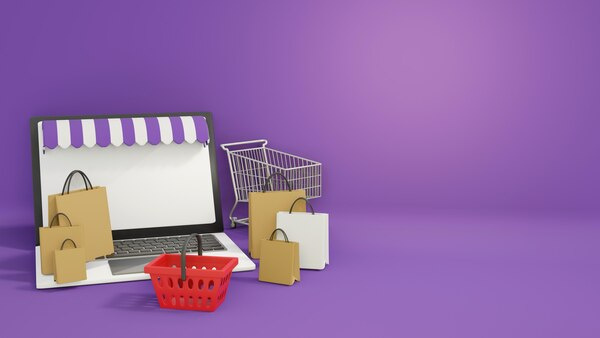Top E-commerce Trends in 2023
The world of e-commerce is perpetually evolving, driven by technological advancements, shifting consumer behaviors, and the constant push for innovation. As we step into 2023, several emerging trends are redefining the landscape of online retail. Here are the top e-commerce trends that businesses and consumers can expect to shape the industry this year:
- Artificial Intelligence and Machine Learning Artificial Intelligence (AI) and Machine Learning (ML) are becoming increasingly integral to e-commerce operations. From personalized shopping experiences to efficient customer service, AI-driven tools are enhancing every aspect of the online shopping journey. Intelligent algorithms can now predict consumer preferences, optimize inventory management, and streamline logistics, making the entire process more efficient and customer-focused.
- Sustainable Shopping Practices Consumers are becoming more environmentally conscious, demanding transparency and sustainability from the brands they support. E-commerce businesses are responding by adopting eco-friendly practices, such as sustainable packaging, carbon-neutral shipping, and ethical sourcing of products. Brands that prioritize sustainability are likely to gain a competitive edge, attracting a growing base of eco-aware shoppers.

- Augmented Reality (AR) and Virtual Reality (VR) AR and VR technologies are set to j1cvw how consumers interact with online products. Virtual try-on solutions for fashion items, AR-powered home décor previews, and immersive VR shopping experiences bridge the gap between online and in-store shopping. These technologies offer a deeper level of engagement, helping customers make more informed purchase decisions and reducing return rates.
- Voice Commerce Voice-activated shopping through devices like Amazon's Alexa and Google Assistant is gaining traction. As smart speakers become more prevalent in households, consumers are increasingly using them to browse products, compare prices, and make purchases. E-commerce businesses are optimizing their platforms for voice search and creating seamless voice shopping experiences to cater to this growing trend.
- Social Commerce Social media platforms are evolving into powerful commerce channels. Features like shoppable posts, in-app checkout, and influencer partnerships are driving sales directly through social media. Platforms such as Instagram, Facebook, and TikTok are blurring the lines between social interaction and shopping, making it easier for consumers to discover and purchase products within their favorite apps.
- Subscription Services The subscription box model is experiencing significant growth across various industries, from beauty and fashion to food and wellness. These recurring revenue models offer convenience and personalized experiences, fostering customer loyalty and providing businesses with predictable income streams. In 2023, even more brands are expected to explore subscription services as a way to build lasting relationships with their customers.
- Blockchain and Cryptocurrency Payments Blockchain technology and cryptocurrency payments are making waves in the e-commerce sector. Blockchain provides secure and transparent transactions, reducing fraud and enhancing trust. Meanwhile, the acceptance of cryptocurrencies like Bitcoin and Ethereum as payment methods offers customers more flexibility and can attract tech-savvy shoppers. As these technologies mature, their adoption in e-commerce is likely to increase.
- Enhanced Delivery and Logistics With the rise in online shopping, efficient delivery and logistics have become critical. In 2023, we can expect innovations in last-mile delivery, including the use of drones, autonomous vehicles, and local delivery hubs. Faster and more reliable delivery options will become standard, as consumers demand quicker turnaround times and greater convenience.
- Omnichannel Experiences Creating seamless, integrated shopping experiences across multiple channels is more important than ever. Consumers expect to interact with brands consistently, whether they're shopping online, on mobile apps, or in physical stores. An omnichannel approach ensures that customer data and preferences are synchronized, providing a cohesive and personalized experience across all touchpoints.
- Data Privacy and Security As data breaches and privacy concerns continue to make headlines, e-commerce businesses are prioritizing data security measures. Compliance with regulations like the General Data Protection Regulation (GDPR) and the California Consumer Privacy Act (CCPA) is essential. In 2023, companies will need to invest in robust security protocols and transparent data handling practices to maintain consumer trust.
In conclusion, the e-commerce industry in 2023 is characterized by a blend of technological advancements and a heightened focus on customer experience. Businesses that stay ahead of these trends and adapt their strategies accordingly will be well-positioned to thrive in the competitive online retail landscape.